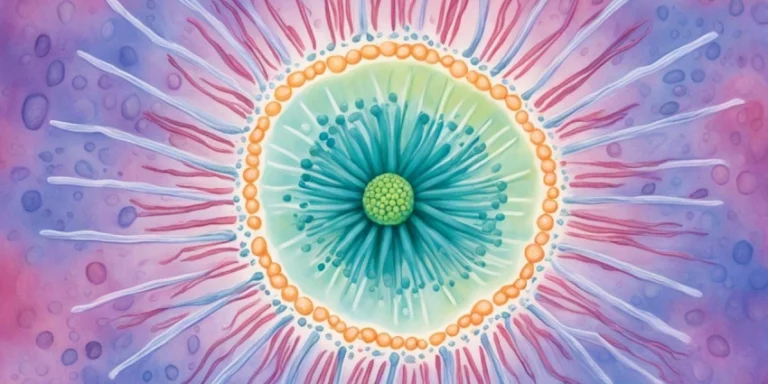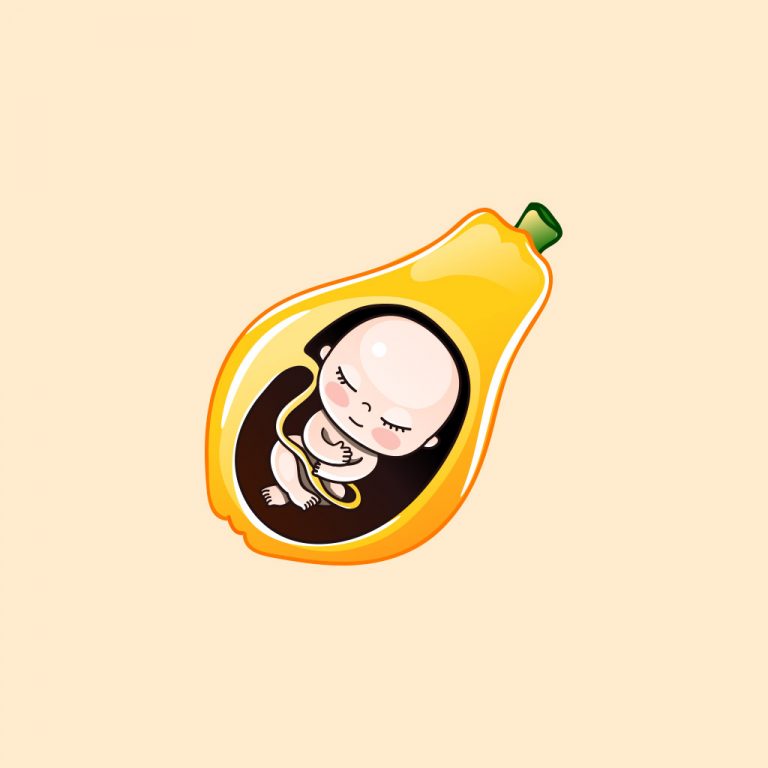Did you know that about 90% of women experience early signs of pregnancy like feeling tired and having tender breasts right after conception? These early signs are similar to pre-menstrual symptoms but are key for those hoping for a baby. While some women notice many symptoms, others might not feel any changes until later on. Recognizing these signs early can help you figure out you’re pregnant before even taking a test. Let’s explore the common early pregnancy symptoms and signs of pregnancy to keep an eye on as your pregnancy progresses.
Key Takeaways
- Missed period: If a week or more goes by without your expected menstrual cycle starting, you could be pregnant.
- Nausea: Morning sickness can begin one to two months after conception and it doesn’t only happen in the morning.
- Food aversions and smell sensitivity: Early in pregnancy, your sense of taste and smell might change due to heightened senses.
- Fatigue: Feeling extremely tired shortly after conception is common due to hormonal changes.
- Tender, swollen breasts: Early in the pregnancy, hormones can make your breasts feel tender and swollen.
Understanding these early signs of pregnancy is crucial for recognizing and confirming a new pregnancy. Whether you are hoping for a baby or just interested in learning about other early pregnancy symptoms yourself, these indicators are your first clues. They help you understand the changes your body goes through after conception.
Missed Period
A missed menstrual cycle often signals a potential pregnancy. This is especially true for those with regular cycles. It’s a clear sign that might make someone think they could be pregnant if their period doesn’t show on time.
Understanding the Timeline
Knowing your menstrual cycle history is helpful. If your cycle is regular and you’re over a week late, this might hint at pregnancy. But for those with irregular cycles, it’s harder to tell. Being familiar with your menstrual history is important for figuring out pregnancy chances.
When to Take a Pregnancy Test
You can take a home pregnancy test about a week after missing your period. These tests look for hCG in your urine, which appears after the egg implants itself. However, testing too early can lead to false or positive pregnancy test or negatives. If you still don’t get your period and think you’re pregnant, try testing again in a few days. This ensures a more accurate, positive result.
Fatigue
In early pregnancy, many feel very tired. This tiredness is often due to big hormonal changes in the body.
Causes of Pregnancy Fatigue
The main reason for pregnancy symptoms start this tiredness is the rising progesterone levels. Progesterone helps keep the pregnancy going. It also makes you feel calm and sleepy, especially in the first trimester. Besides, your body is busy making the placenta and supporting the growing baby, which uses a lot of energy.
Another cause is the big rise in increased blood volume and flow. During pregnancy, your blood volume can go up by about 50%. Your body has to work harder to pump this extra blood to your organs and the placenta. This can make you feel very tired.
How to Manage Fatigue
Here are some tips to handle tiredness during pregnancy:
- Change your sleep habits: Go to bed early and take naps to get more sleep.
- Eat well: Focus on iron, protein, and important vitamins to fight off tiredness.
- Make your bedroom better for sleep: Keep it cool, dark, and quiet.
- Drink a lot of water: Staying hydrated helps keep your energy up.
- Do light exercise: Walking or gentle prenatal yoga can boost your circulation and lessen tiredness.
Listening to what your body needs and making small changes can help manage the tiredness. This can make you feel better overall during pregnancy.
Breast Changes
Many women notice changes in their breasts as one of the first signs of pregnancy. These usually start to occur from the four to six weeks mark. Breast tenderness, swelling, and size increase are common due to hormonal increases in estrogen.
Swollen and Tender Breasts
Early in pregnancy, breasts often swell and feel tender. This happens as the body gears up for breastfeeding. It’s caused by big changes in hormones and, despite being uncomfortable, is totally normal.
Areola Changes
The areola, or the area around the nipples, also changes early on. It gets darker and bigger, which is known as areola darkening. At the same time, Montgomery’s tubercles become more obvious. They make oils that are important for breastfeeding. These signs are clear indicators of pregnancy.
Morning Sickness
Morning sickness is common in pregnancy often causing nausea and vomiting. It typically starts by the sixth week and hits its peak by the ninth. However, it can start earlier or last throughout the pregnancy for some.
Triggers and Time Frame
Morning sickness usually happens in the first trimester and often goes away after 14 to 16 weeks. But, some women may have it during their whole pregnancy. The main cause is unclear, but hormones likely play a role. Certain smells, tastes, motion sickness, or migraines can trigger it. Women with a family history of severe nausea, like hyperemesis gravidarum, are at higher risk if carrying multiples or if they had it in past pregnancies.
Remedies and Management
To manage morning sickness, there are several tips. Trying ginger or eating small meals often can help. It also helps to avoid fatty or spicy foods and to drink plenty of water. In worse cases, doctors may recommend Vitamin B6, antiemetic medicines, or a mix of treatments. For extreme nausea, like hyperemesis gravidarum, IV fluids or a feeding tube might be needed for nutrition.
If home treatments don’t help or if vomiting and nausea last after the fourth month, get medical help. Serious morning sickness could lead to dehydration and electrolyte problems, requiring professional treatment.
Frequent Urination
Frequent urination is a clear sign of early pregnancy. It often starts a few weeks after conception. It lasts through the entire pregnancy. Pregnancy hormones, more blood flow, and pressure on the bladder from the growing uterus are the main reasons.
Hormonal Causes
Pregnancy hormones, mainly hCG, cause you to urinate more. hCG increases blood to the kidneys. This means the kidneys filter more efficiently for both mom and baby. So, needing to pee a lot can be an early pregnancy symptom clue.
Frequency and Duration
How often and how much you need to pee can vary. You might go 6 to 7 times a day. But, as the baby grows, you may need to go more often. The pressure on the bladder increases.
In the second trimester, you might urinate less. But, it picks up again as the baby drops lower. Emptying your bladder 4 to 10 times a day during pregnancy is normal.
Watch out for urinary tract infections (UTIs) during pregnancy. About 8% get a UTI. If not treated, UTIs can harm both mother and baby. Doing Kegel exercises helps. Try 10 reps, three times a day. It strengthens your pelvic floor and helps with bladder pressure.
Early Indicators of Pregnancy
Knowing the initial pregnancy signs helps spot pregnancy early. These signs vary due to the hormonal changes in your body. A missed period is one of the first signs, usually noticed five to six weeks after conception.
Other early signs include mild nausea, starting first few weeks to around six weeks. Fatigue is also a common early sign. By the eighth week, 89 percent of women report feeling these symptoms. It’s important to recognize them early and get medical advice.
Early signs include light cramping, bloating, and constipation. Another sign is spotting or implantation bleeding, happening six to twelve days after conception. This bleeding is light pink or brown. About 25% to 40% of women experience this sign.
Early pregnancy changes breast tissue too. Breasts become swollen and tender. The areola also changes. These changes are due to hormone levels increasing to prepare for nursing.
Mood swings and a keen sense of smell are not unusual signs also early signs. If you’re suddenly turned off by certain foods or have unexpected mood changes, it might be due to hormonal shifts. Recognizing these signs is key in the early stages of pregnancy.
Using home pregnancy tests is advisable about two weeks after missing a period. Dr. Guster recommends taking at least three tests for accurate results. Early detection is vital for starting prenatal care quickly. This care is crucial for you and your baby’s health.
If pregnancy is confirmed, begin taking prenatal vitamins and folic acid supplements. Early care helps avoid complications like high blood pressure or diabetes. Attending prenatal visits, usually between the seventh and ninth week, ensures a good start for your pregnancy. Though every woman’s experience is different, knowing these signs can lead to a healthier pregnancy.
Smell Sensitivity
About two-thirds of pregnant women experience a stronger sense of smell. This condition, known as hyperosmia, often starts in the first trimester. It can cause dislikes to certain scents during pregnancy.
Common Smells to Watch For
Some smells become too strong to handle. Odors that might trigger a strong reaction include:
- Cigarette smoke
- Food odors, especially garlic and onion
- Strong perfumes and body sprays
This sensitivity is usually due to higher estrogen levels. While some women feel mild reactions, others find these odors unbearable. This might lead to changing daily routines and living spaces.
Impact on Daily Life
Increased smell sensitivity can disrupt daily life. Making meals or shopping for groceries might become hard because of strong odors. It’s really important to adjust your lifestyle:
- Eat foods that don’t smell too much.
- Stay away from places with strong odors, like smoky areas.
- Use scent-free products at home to avoid bothersome smells.
Even though hyperosmia is not all women most common in pregnancy, most women find their smell sensitivity goes down pretty quickly and early on.
Implantation Bleeding
Implantation bleeding is often an early sign of pregnancy. It happens when a fertilized egg connects to the uterine wall. This usually occurs seven to 14 days after conception. It can be mistaken for a light period. About 25% of pregnant people report experiencing this. It’s vital to know the signs to tell it apart from other types of bleeding.
Identification
To spot implantation bleeding, observe its unique features. It tends to be light pink to brown, unlike the bright red of menstrual blood. It’s also shorter in duration, only lasting one to three days. Additionally, mild cramping might occur with this bleeding. This is key to differentiating it from a regular period.
Differences from Menstrual Period
There are clear differences between implantation and menstrual bleeding. Implantation bleeding is lighter and shorter than menstrual blood. Menstruation typically results in heavier, longer-lasting, bright or dark red bleeding. Conversely, implantation bleeding is pink to brown. Spotting vaginal bleeding more than two weeks post-fertilization likely isn’t implantation. If it’s joined by symptoms like pelvic pain or dizziness, seeking medical advice is crucial.
Conclusion
Recognition that you are pregnant is important to start appropriate prenatal care as early as possible. This care is vital for a healthy pregnancy. Early signs like a missed period often lead women to take a pregnancy test. There are also other common early pregnancy signs but not as well-known.
Changes in your breasts, like the darkening of the areolas, can appear just one to two weeks after conception. Feeling very tired and being more sensitive to smells are also early signs. They usually start by the fourth or fifth week.
Implantation bleeding may look like a light period, but it’s different. It can happen up until the fourth week after conceiving. Many women also start going to the bathroom a lot more early on, especially around six to eight weeks. Nausea, or morning sickness, often gets better after the first trimester.
Every pregnancy is different. Not everyone will feel all these symptoms, and how strong they are can change a lot. Signs like frequent urination and changes in the breasts are common reasons to see a doctor. By knowing these signs, and other pregnancy symptoms you can take important steps for a healthy pregnancy.
Talk to healthcare experts for advice and tests to confirm your pregnancy. This ensures the best care for you and your baby. Always consult with healthcare professionals for the right guidance.
FAQ
What are the early signs of pregnancy?
Early signs of pregnancy include missing a period, feeling sick in the morning, and having tender breasts. Fatigue, peeing more often, craving certain foods, feeling moody, light bleeding, and a temperature rise are also signs. These symptoms can differ from woman to woman.
How can I distinguish a missed period from just a late period?
A missed period is usually one that’s overdue by a week or more, if your cycle is usually regular. You can use a pregnancy test a week after missing your period to check if you’re pregnant.
When is the best time to take a pregnancy test?
It’s best to take a pregnancy test one week after missing your period. This gives time for the pregnancy hormone, hCG, to be detected in your urine.
Why do I feel so tired during early pregnancy?
Fatigue in early pregnancy happens because of big hormonal changes, like increased progesterone. Your body also makes the placenta and supports the baby, which takes a lot of energy.
How can I manage fatigue during pregnancy?
Managing pregnancy fatigue includes adjusting your sleep patterns, eating right, and creating a calm environment. Keeping your bedroom cool can help you sleep better too.
What breast changes should I expect in early pregnancy?
Early pregnancy can make breasts tender, swollen, and bigger. The area around nipples may darken and grow. Small bumps, called Montgomery’s tubercles, might stick out more.
When does morning sickness usually start, and what are its triggers?
Morning sickness often starts around the sixth week of early pregnancy symptom but can vary. Certain smells or tastes, due to pregnancy hormones, can trigger it.
What are some remedies for morning sickness?
For morning sickness, try eating little but often, drinking lots of water, and avoiding smells or tastes that make you feel sick. If it’s very bad, see your pregnancy care provider.
Why am I urinating more frequently during early pregnancy?
In early pregnancy, emptying your bladder more often is caused by hormonal changes, like more hCG, which increases kidney blood flow. The growing baby also presses on your bladder.
What should I know about implantation bleeding?
Implantation bleeding is light spotting when the egg attaches to the womb, about 10 to 14 days after conception. It’s lighter and shorter than a period and might come with slight cramping.
How does heightened smell sensitivity affect daily life during pregnancy?
Being more sensitive to smells can make some odors too strong, leading to nausea or not wanting certain foods. Adjusting what you eat, avoiding certain places, and finding smell alternatives can help.
References
- Symptoms of pregnancy: What happens first – https://www.mayoclinic.org/healthy-lifestyle/getting-pregnant/in-depth/symptoms-of-pregnancy/art-20043853
- Pregnancy Symptoms: 14 Early Signs of Pregnancy – https://www.whattoexpect.com/pregnancy/symptoms-and-solutions/early-signs-of-pregnancy-before-missed-period/
- 17 early signs of pregnancy | HealthPartners Blog – https://www.healthpartners.com/blog/first-symptoms-of-pregnancy/
- Pregnancy Symptoms Before Missed Period: Most and Least Common – https://www.healthline.com/health/pregnancy-symptoms-before-missed-period
- Pregnancy Symptoms: Early Signs You May Be Pregnant – https://www.healthline.com/health/pregnancy/early-symptoms-timeline
- Am I Pregnant? Early Symptoms of Pregnancy & When To Test – https://my.clevelandclinic.org/health/articles/9709-pregnancy-am-i-pregnant
- Signs and symptoms of pregnancy – https://www.nhs.uk/pregnancy/trying-for-a-baby/signs-and-symptoms-of-pregnancy/
- Eight Early Signs You Might Be Pregnant | Banner Health – https://www.bannerhealth.com/healthcareblog/teach-me/7-signs-you-might-be-pregnant
- Morning sickness – Symptoms and causes – https://www.mayoclinic.org/diseases-conditions/morning-sickness/symptoms-causes/syc-20375254
- Morning sickness Information | Mount Sinai – https://www.mountsinai.org/health-library/symptoms/morning-sickness
- Morning sickness – https://www.marchofdimes.org/find-support/topics/pregnancy/morning-sickness
- Frequent urination during pregnancy: Causes and what to do – https://www.medicalnewstoday.com/articles/frequent-urination-during-pregnancy
- 12 early signs that you might be pregnant – https://www.medicalnewstoday.com/articles/290414
- 18 Early Symptoms of Pregnancy: How to notice and confirm – http://www.medparkhospital.com/en-US/lifestyles/symptoms-of-pregnancy
- The most common early signs of pregnancy – https://www.piedmont.org/living-real-change/the-most-common-early-signs-of-pregnancy
- 12 Early Signs of Pregnancy | SSM Health – https://www.ssmhealth.com/newsroom/blogs/ssm-health-matters/april-2022/12-early-signs-of-pregnancy
- Are You Pregnant? 10 Early Pregnancy Signs – https://health.clevelandclinic.org/5-reliable-early-pregnancy-signs
- Has Your Sense of Smell Gotten Stronger During Pregnancy? – https://www.whattoexpect.com/pregnancy/symptoms-and-solutions/heightened-smell.aspx
- 15 Early Pregnancy Signs and Symptoms – https://www.realchoicesnv.org/post/15-early-pregnancy-signs-and-symptoms
- The 9 Most Common Early Pregnancy Symptoms | Enfamil – https://www.enfamil.com/articles/9-most-common-early-pregnancy-symptoms/
- Implantation Bleeding – https://www.webmd.com/baby/implantation-bleeding-pregnancy
- Implantation bleeding: Timing, signs, and how long it lasts – https://www.babycenter.com/getting-pregnant/how-to-get-pregnant/implantation-bleeding_20004436
- What Is Implantation Bleeding and When Does It Occur? – https://www.whattoexpect.com/getting-pregnant/implantation-bleeding/
- 10 Most Common Early Signs of Pregnancy | Byram Healthcare – https://breastpumps.byramhealthcare.com/blog/2019/01/01/signs-pregnancy
- Clinical manifestations and diagnosis of early pregnancy – https://www.uptodate.com/contents/clinical-manifestations-and-diagnosis-of-early-pregnancy
- Early pregnancy symptoms – https://helloclue.com/articles/life-stages/most-common-symptoms-early-pregnancy










